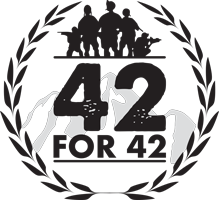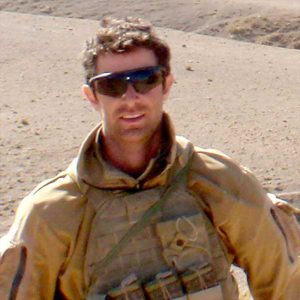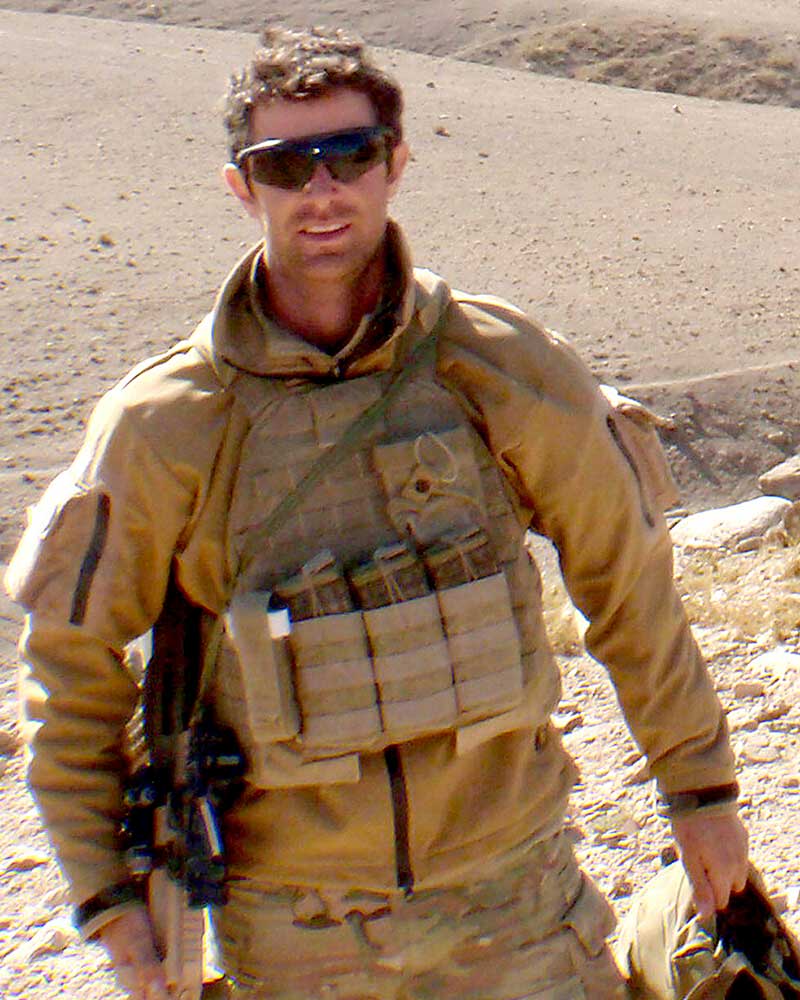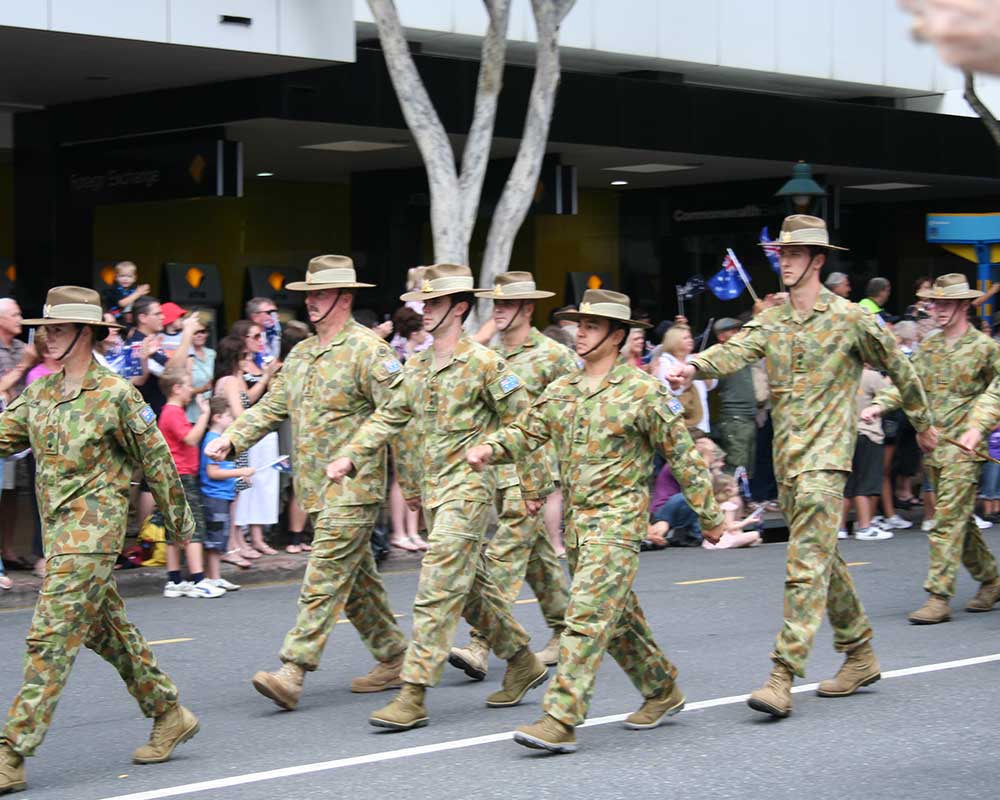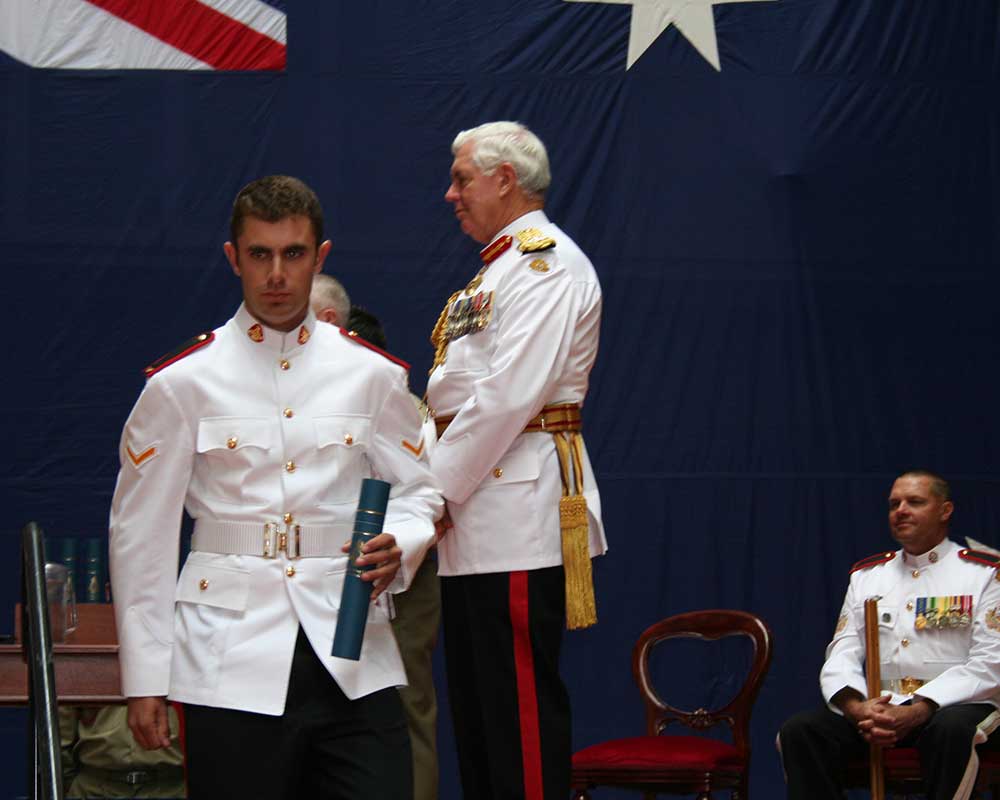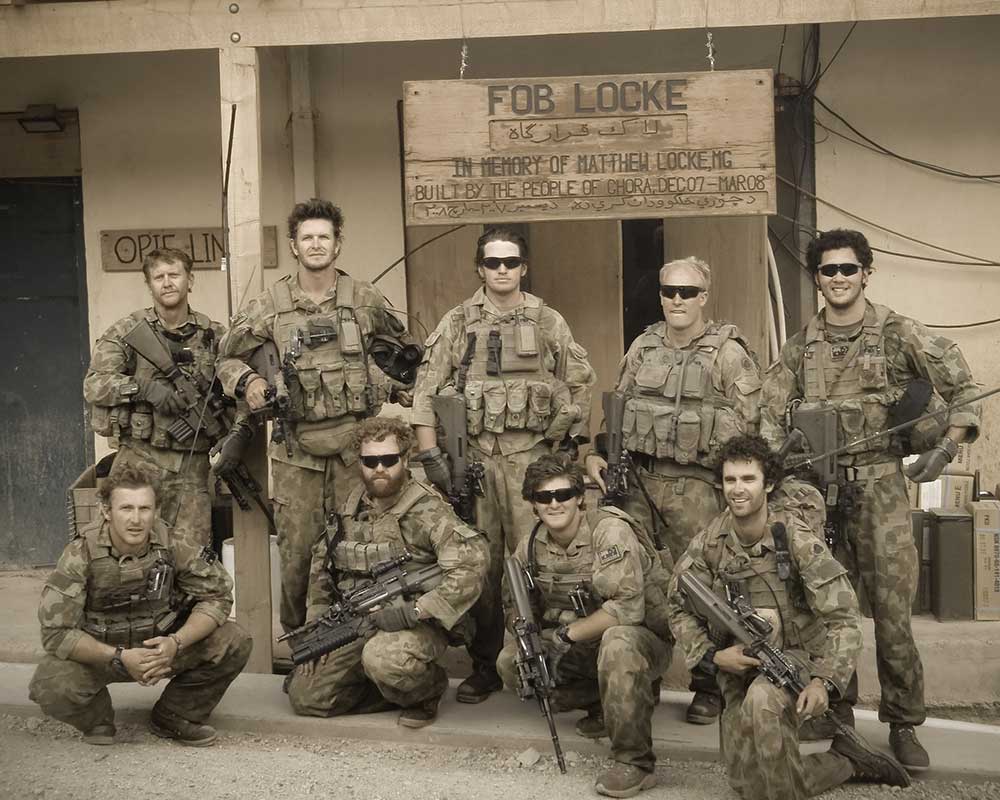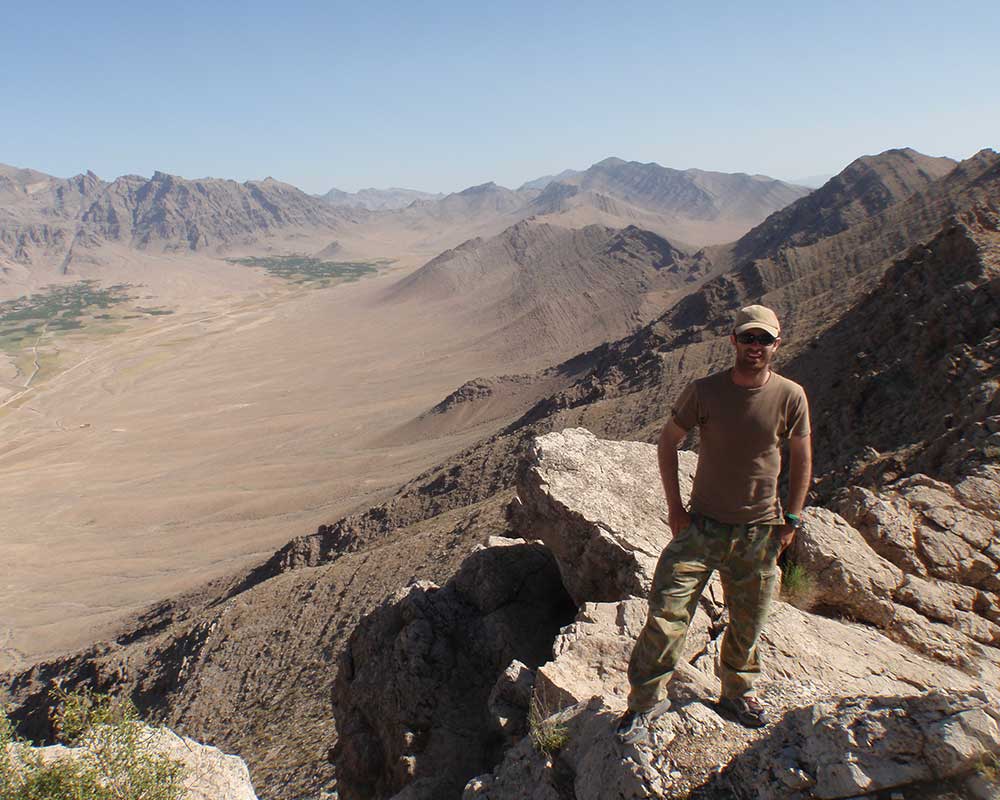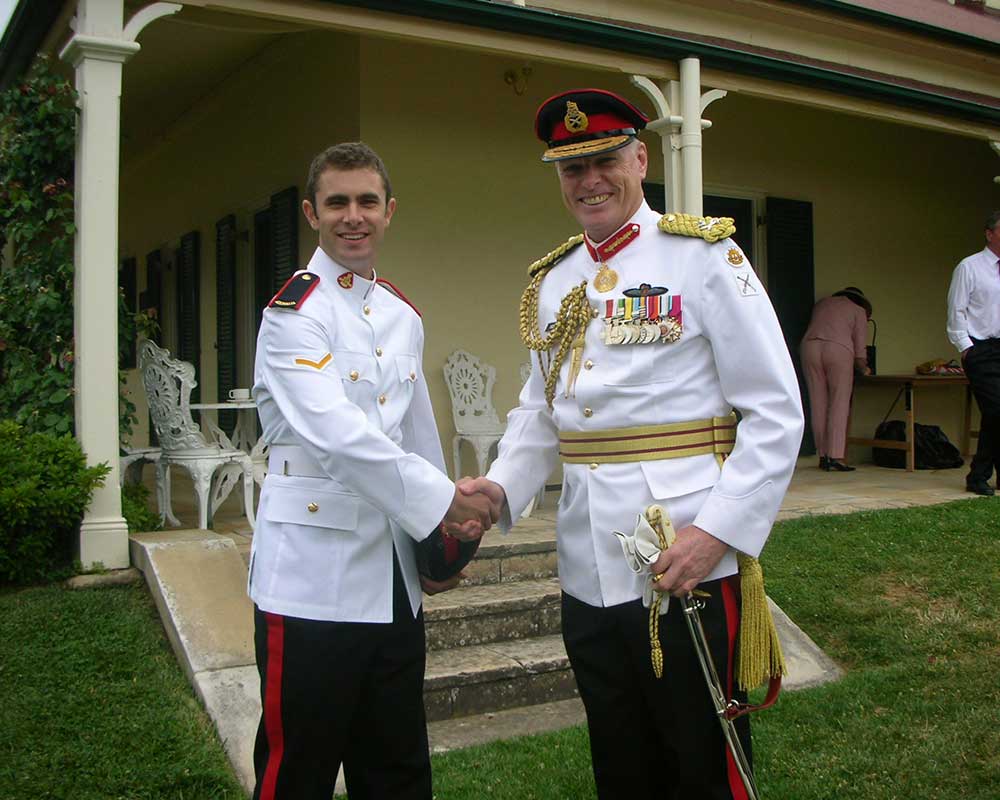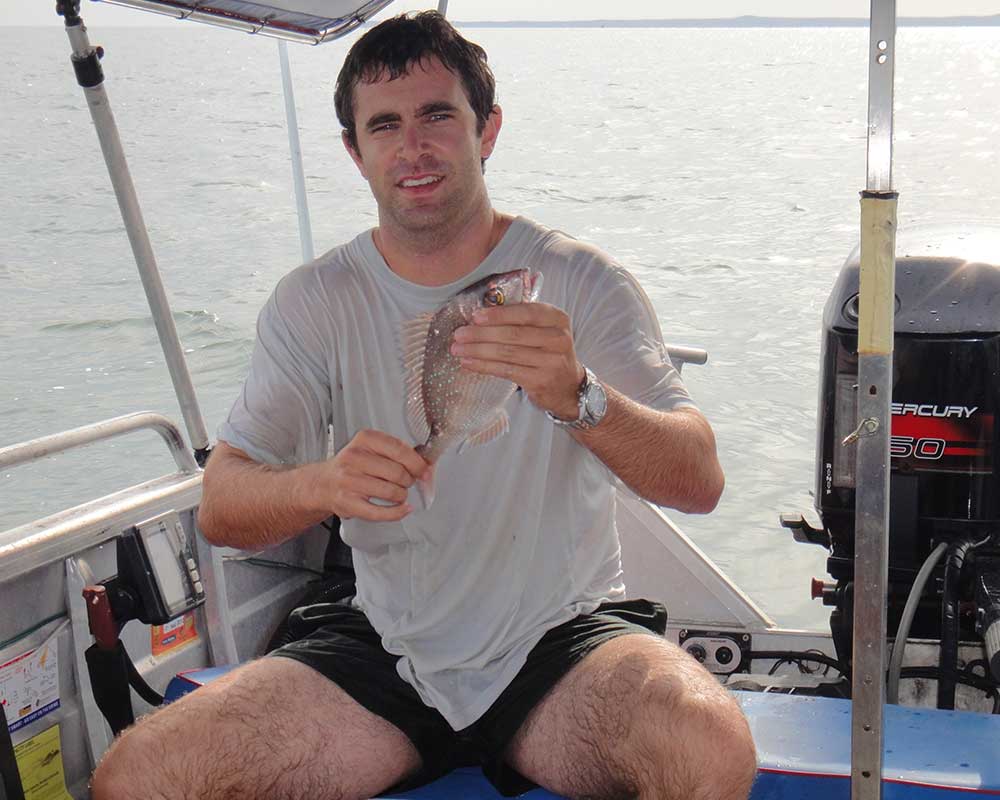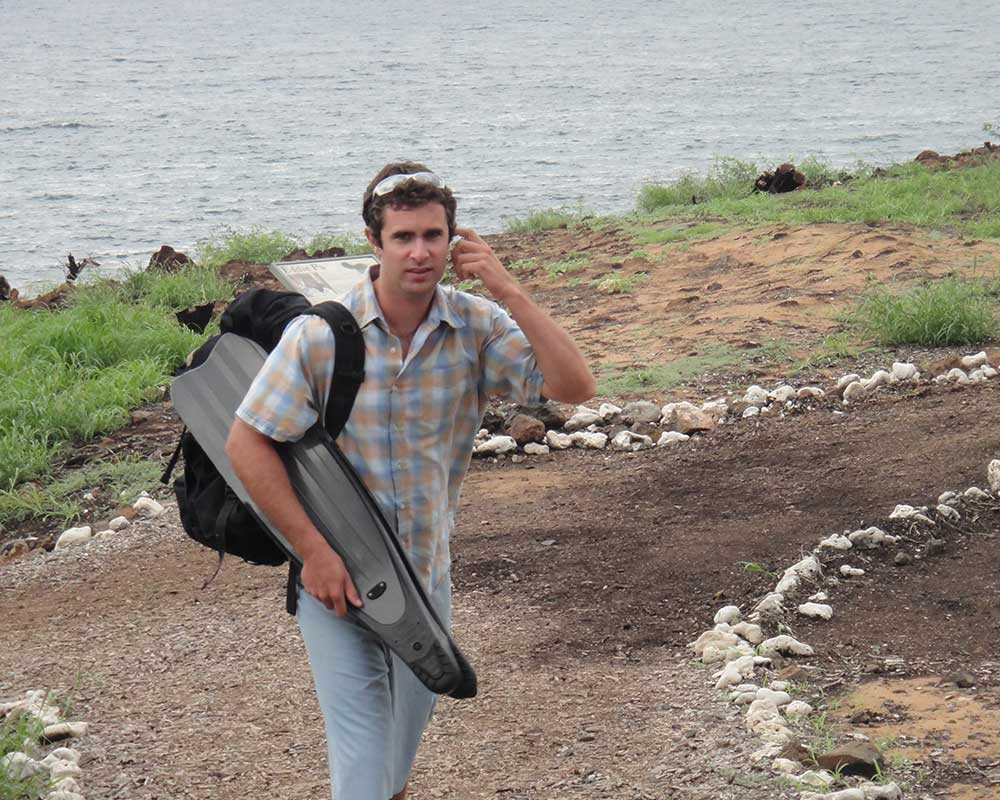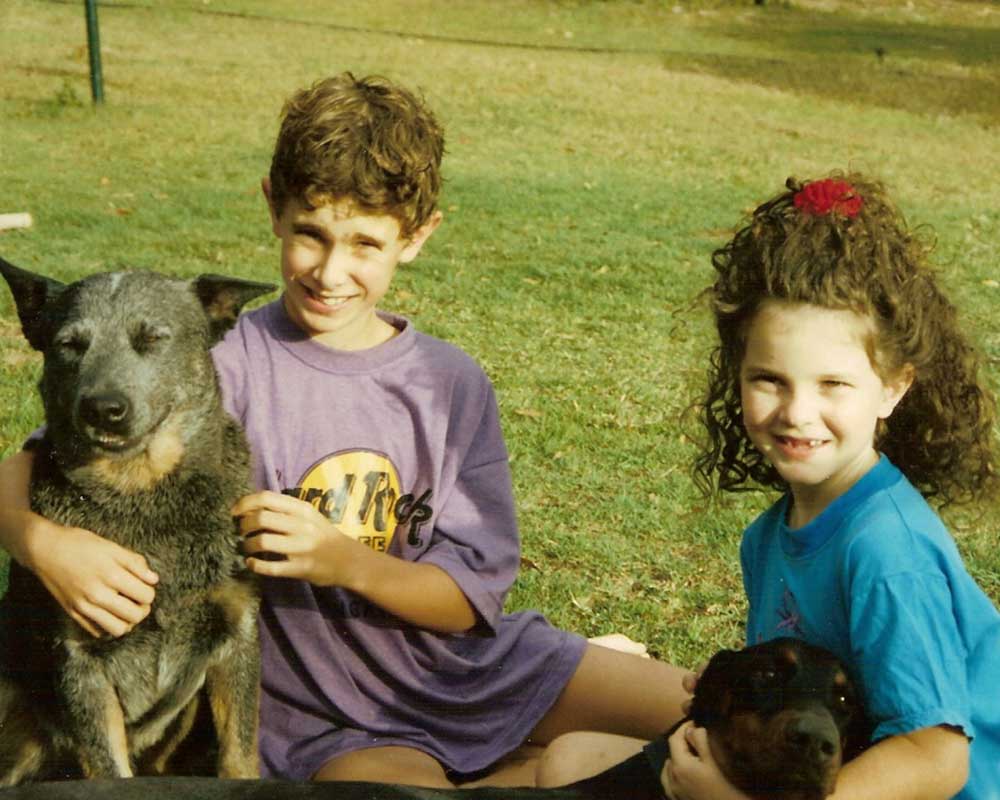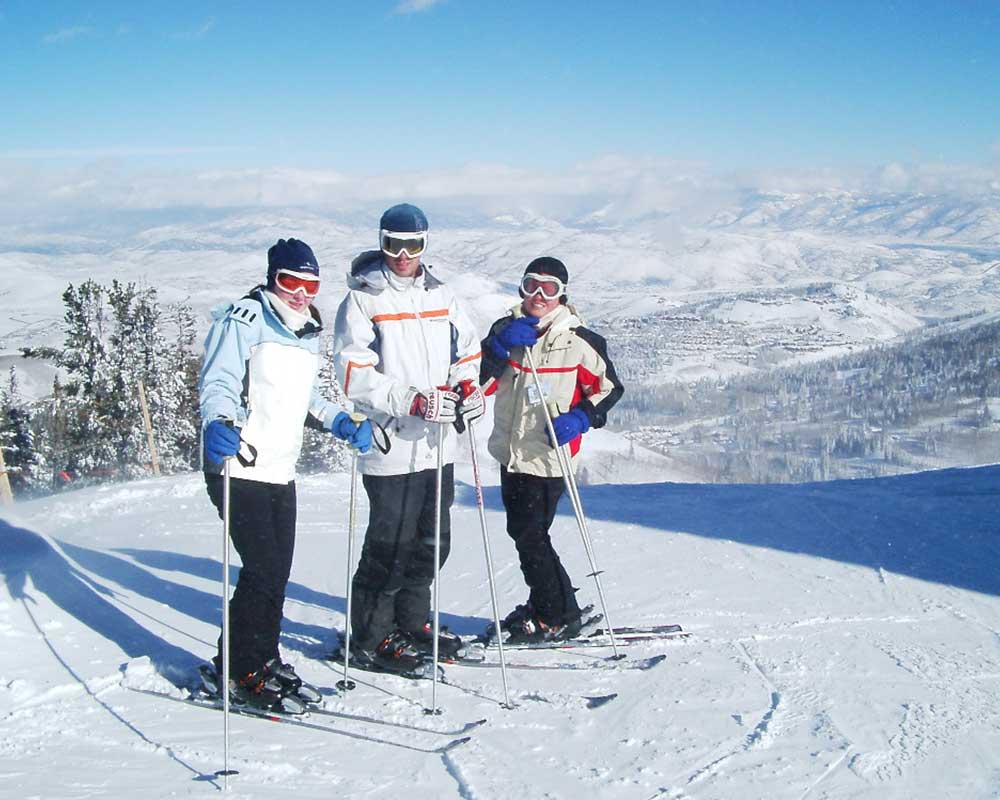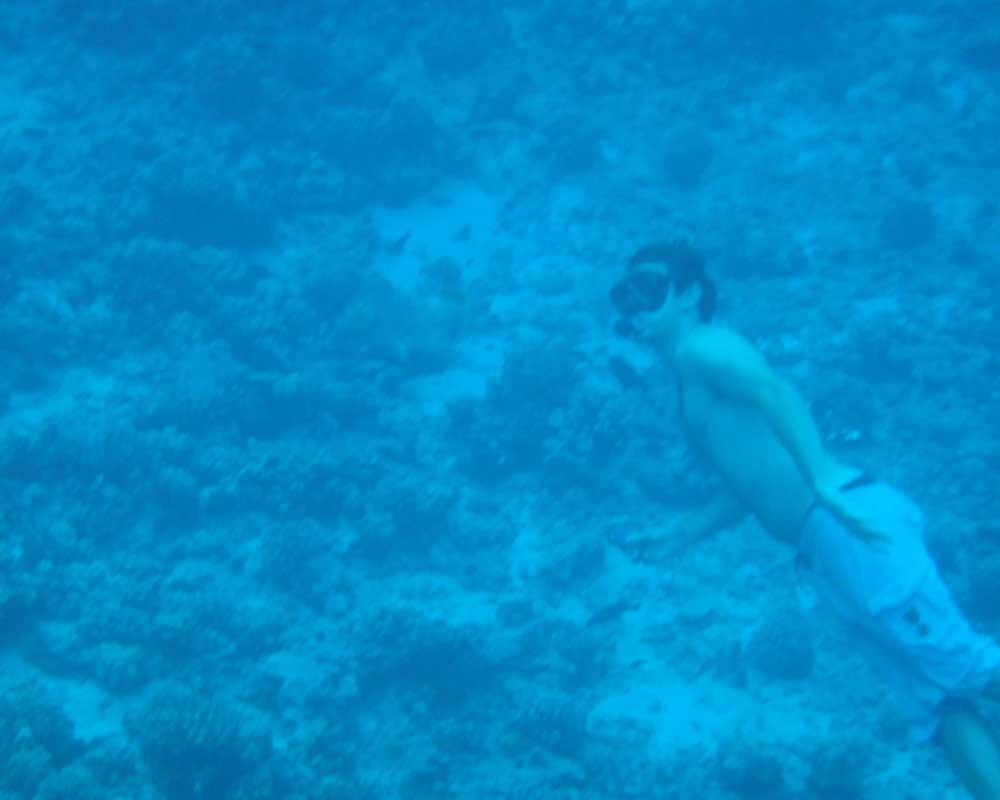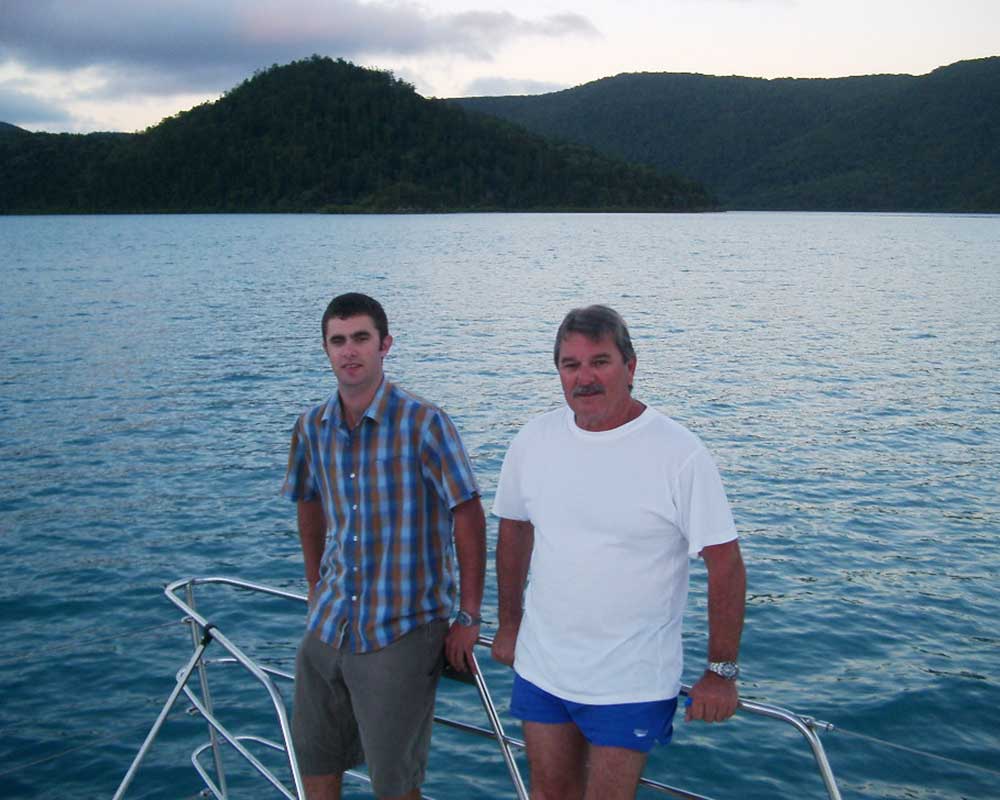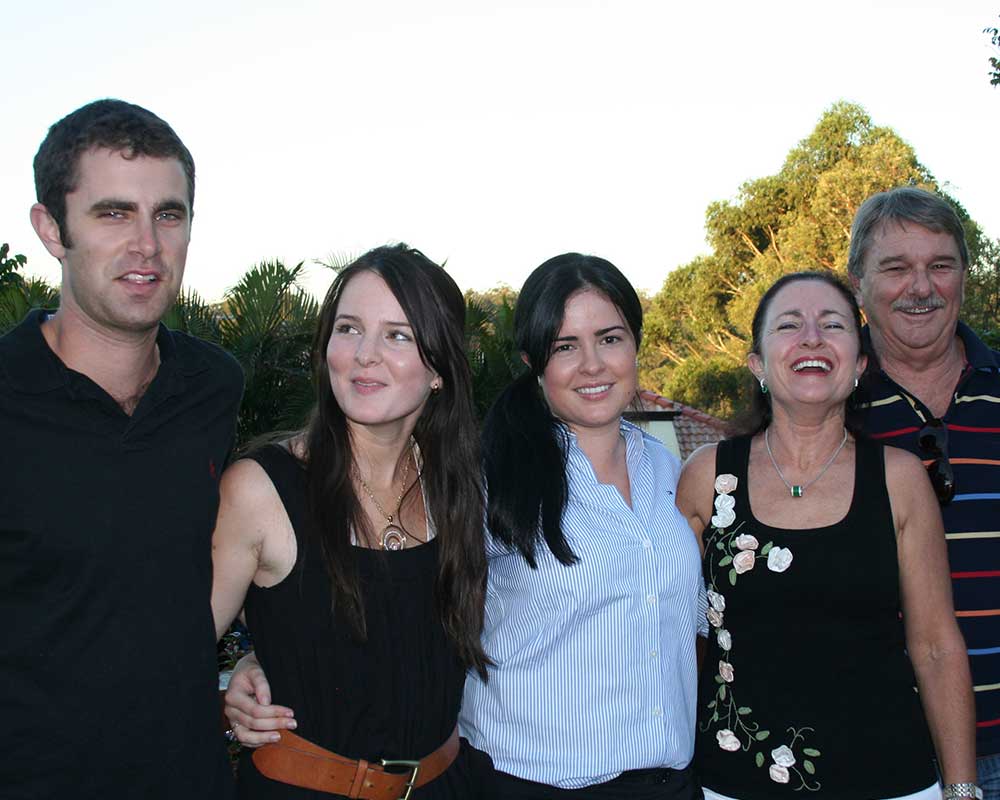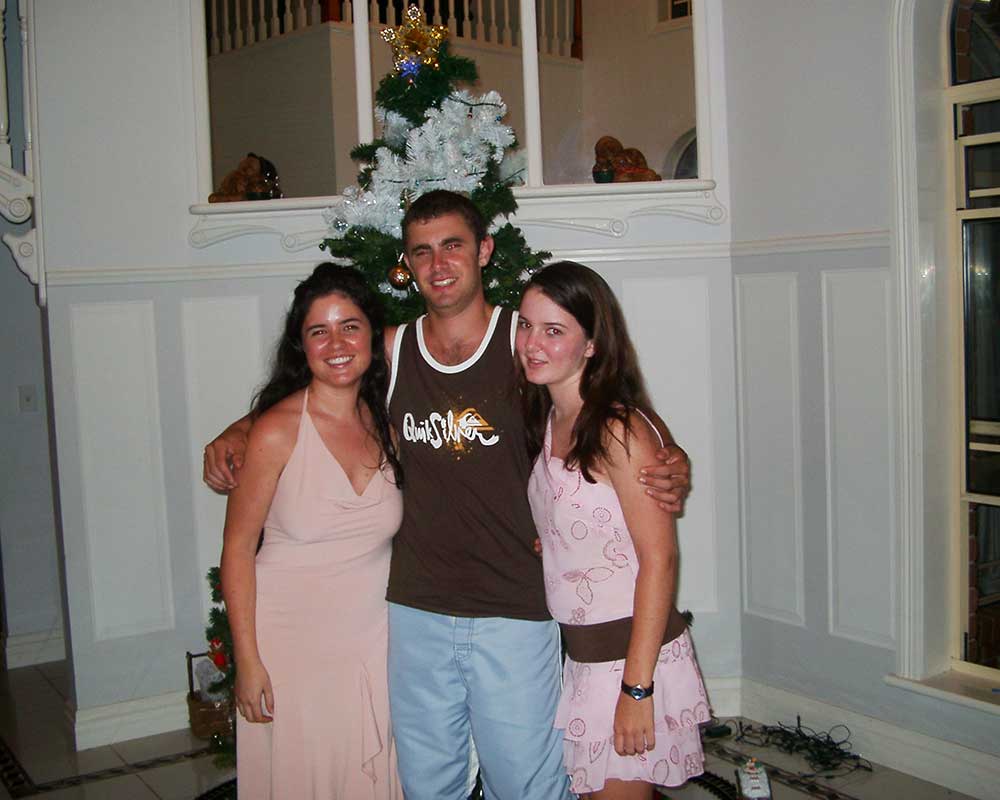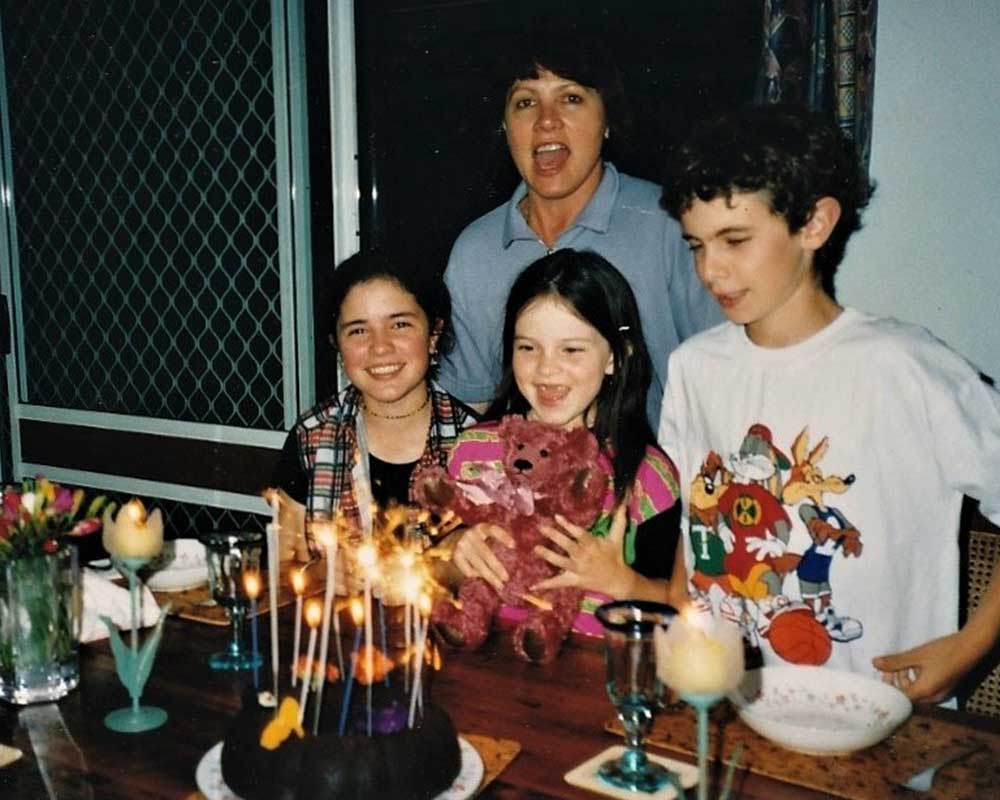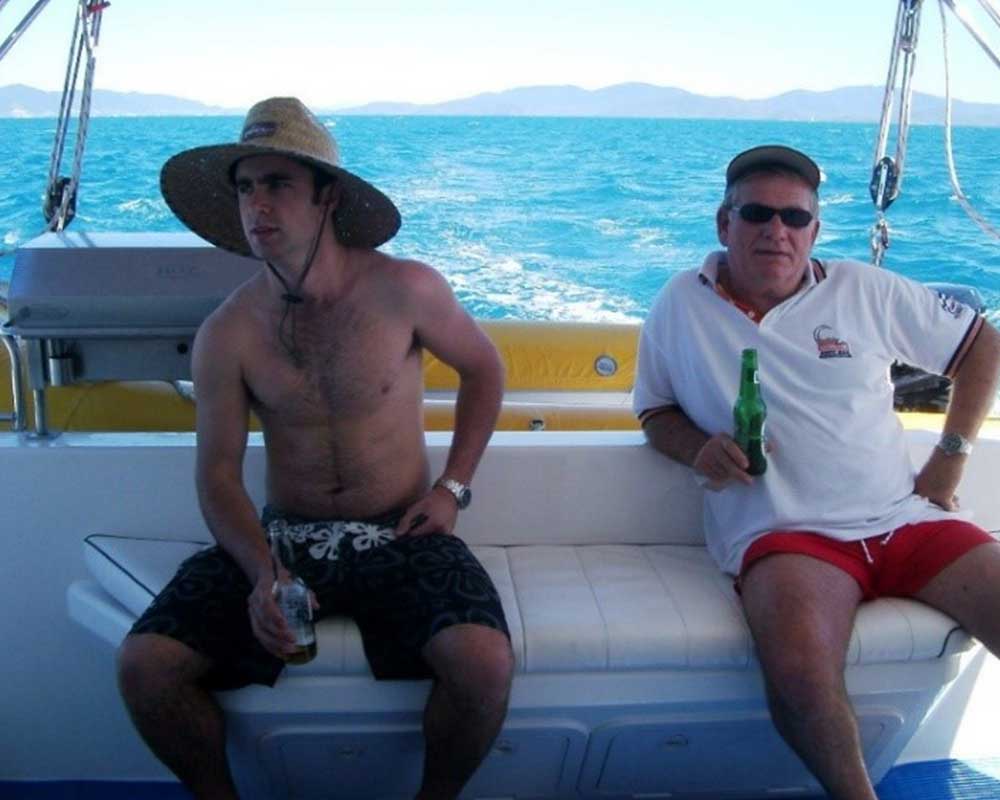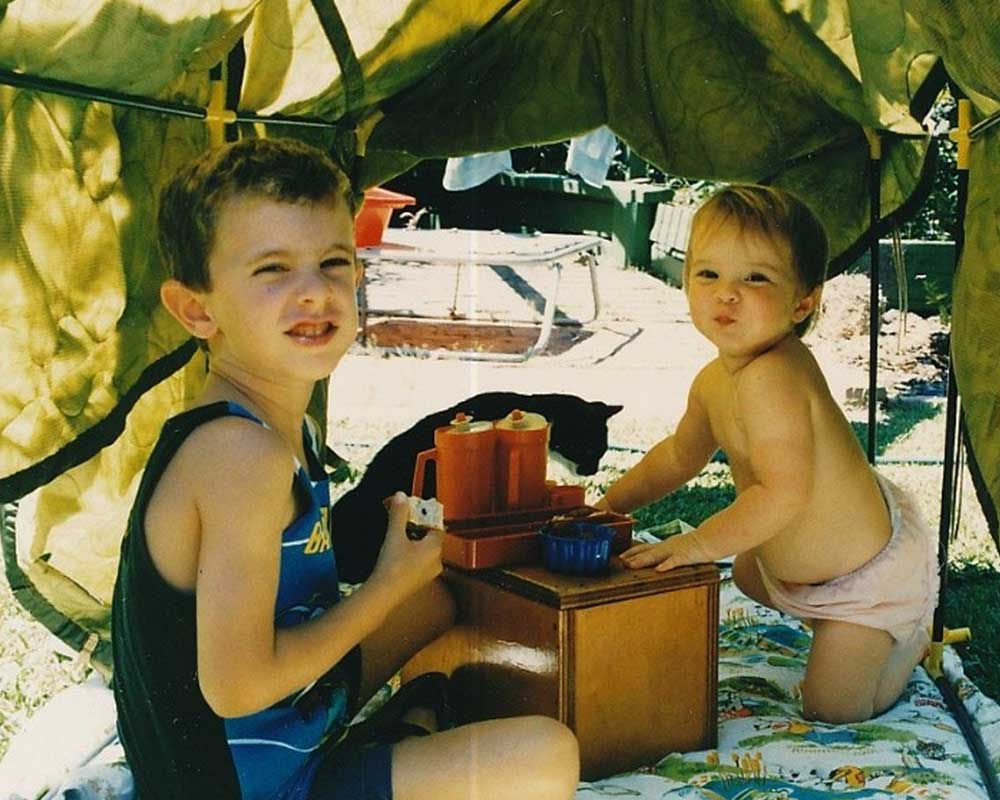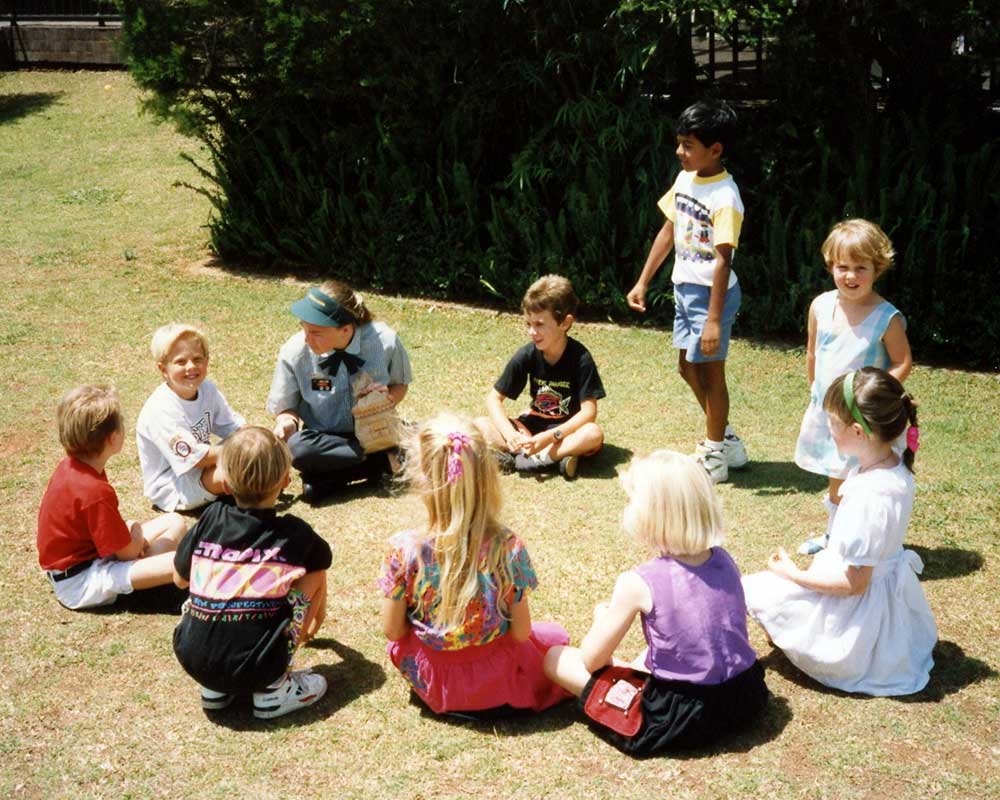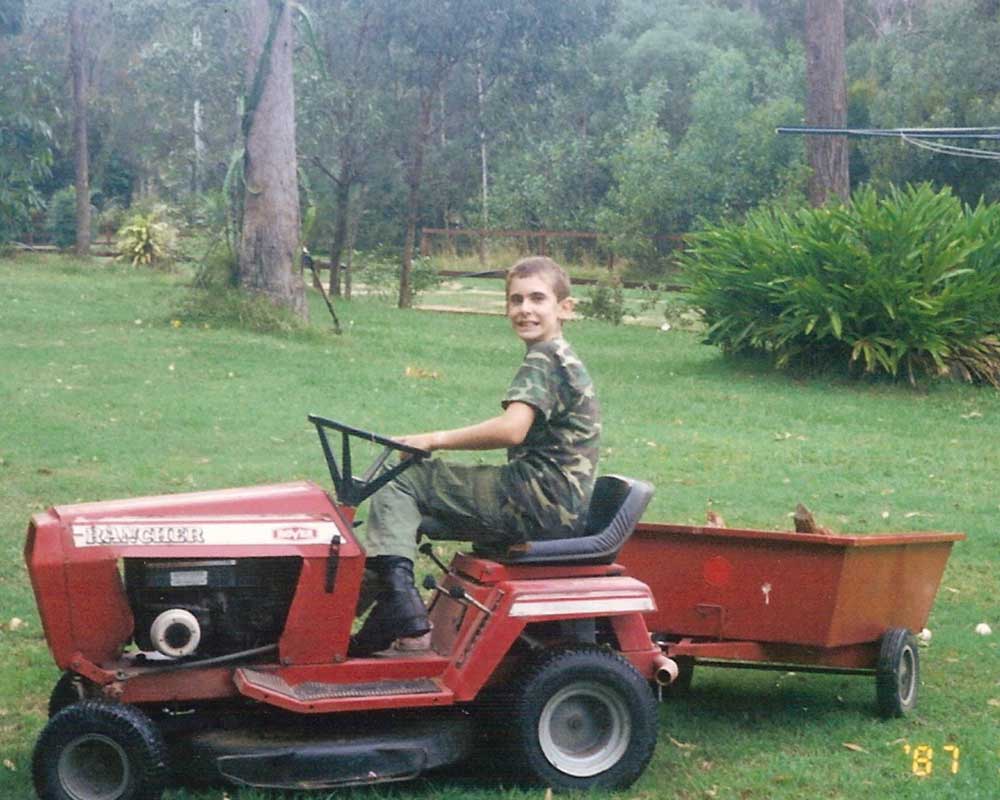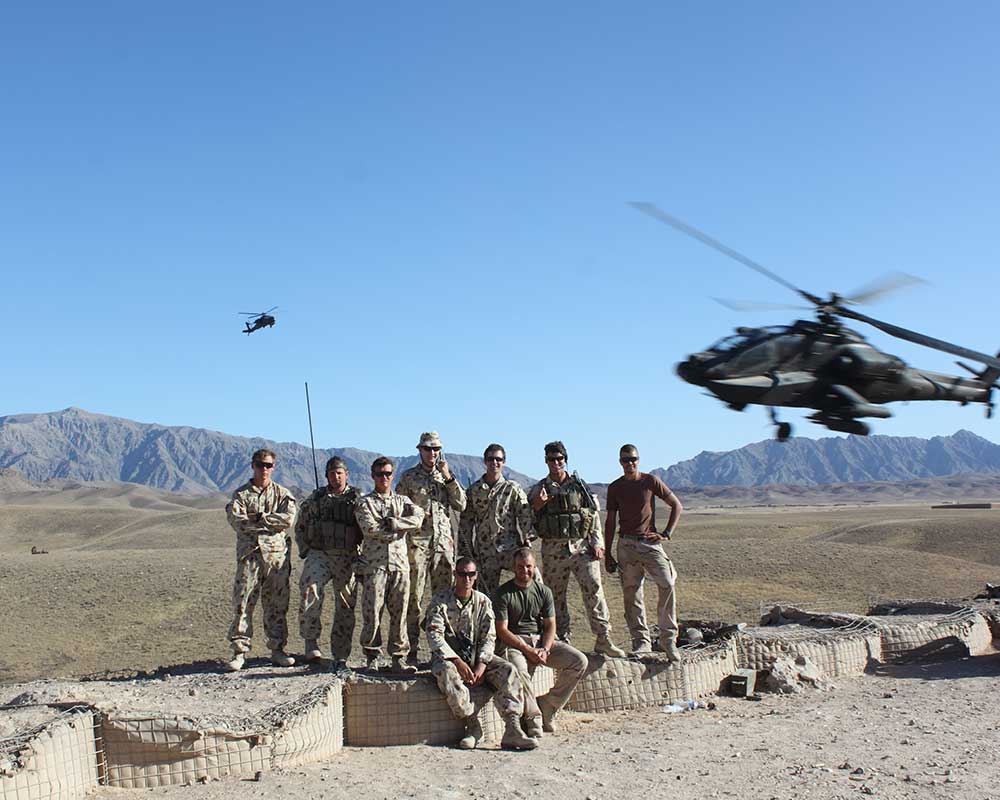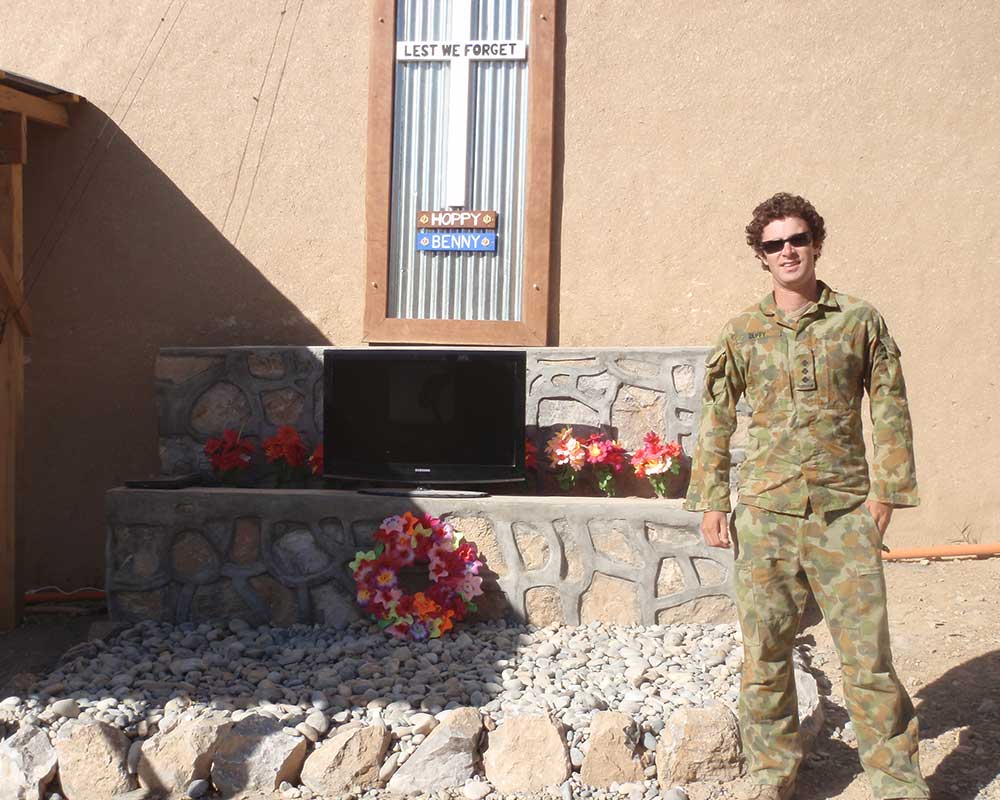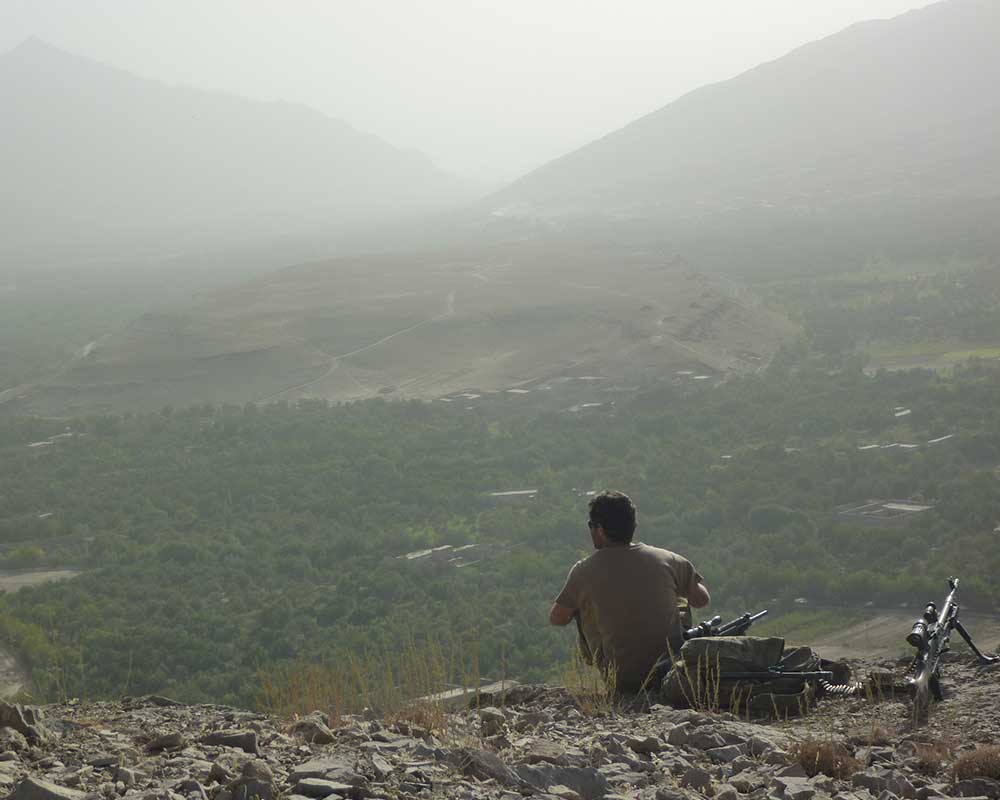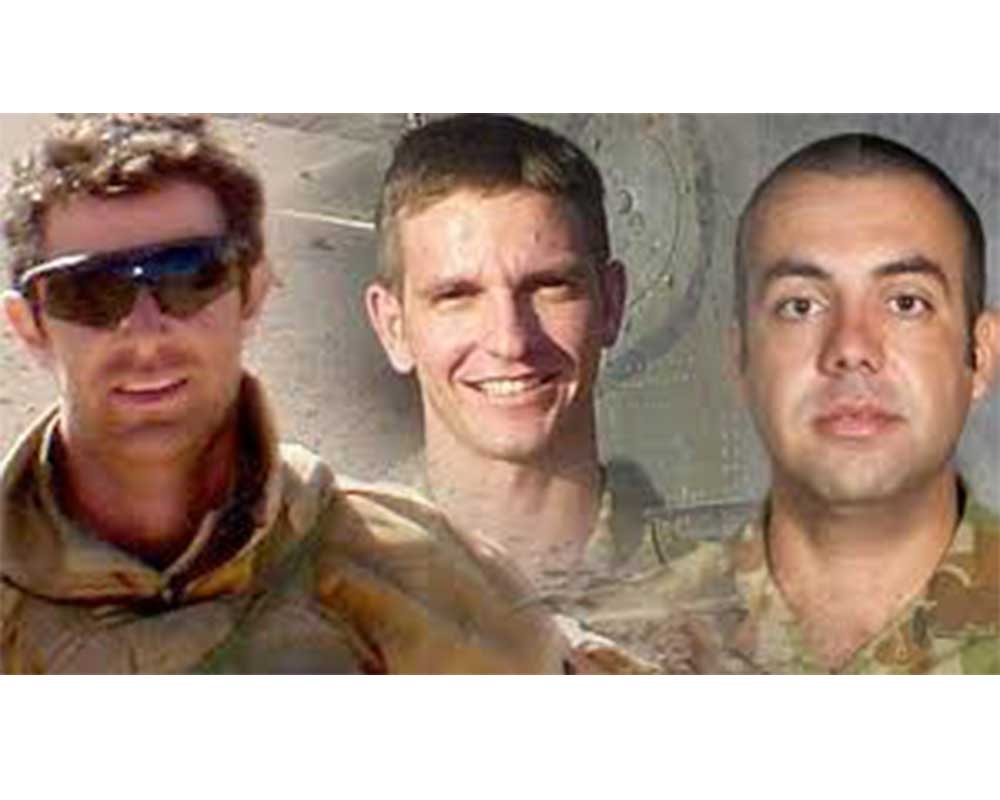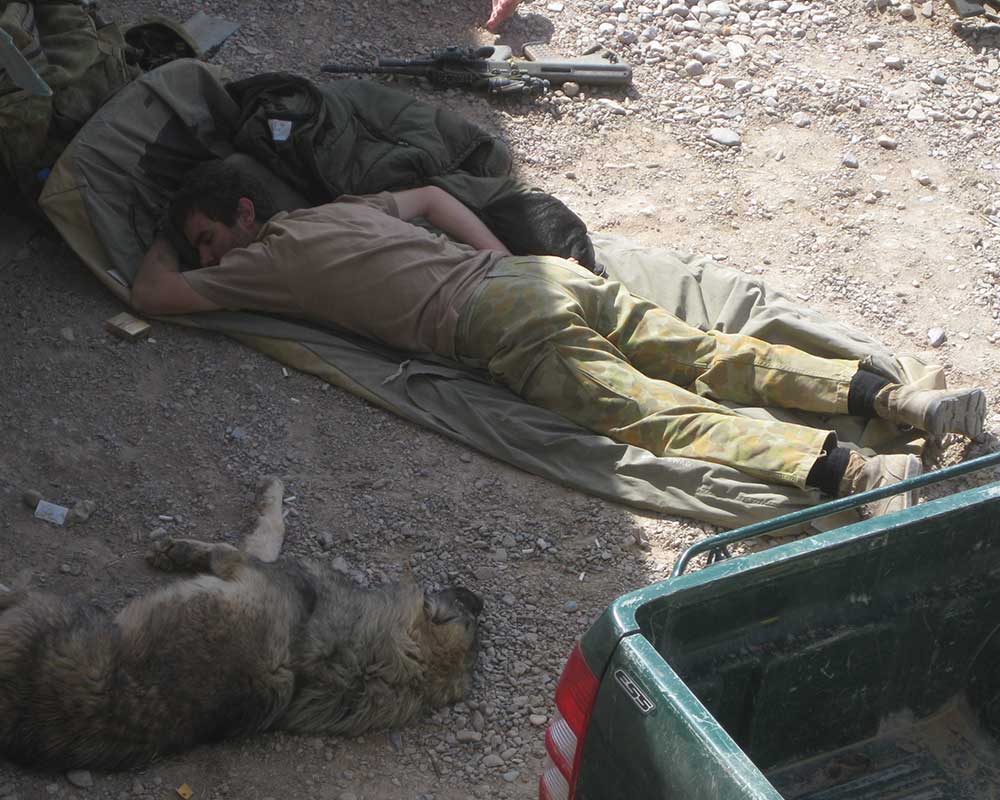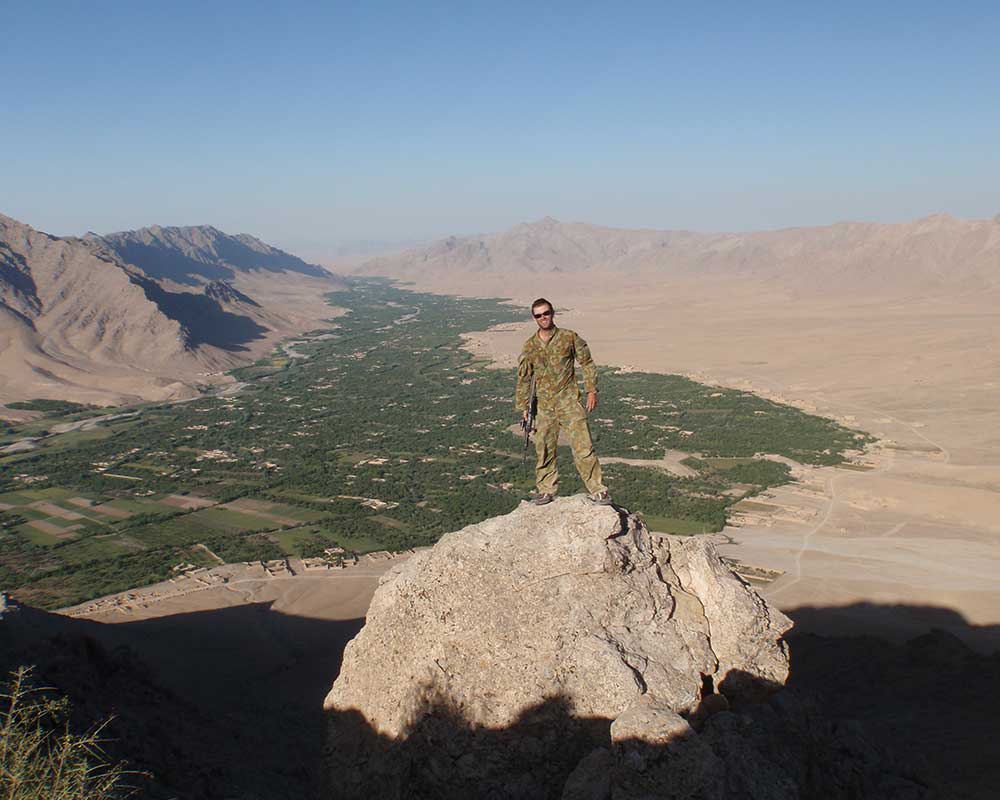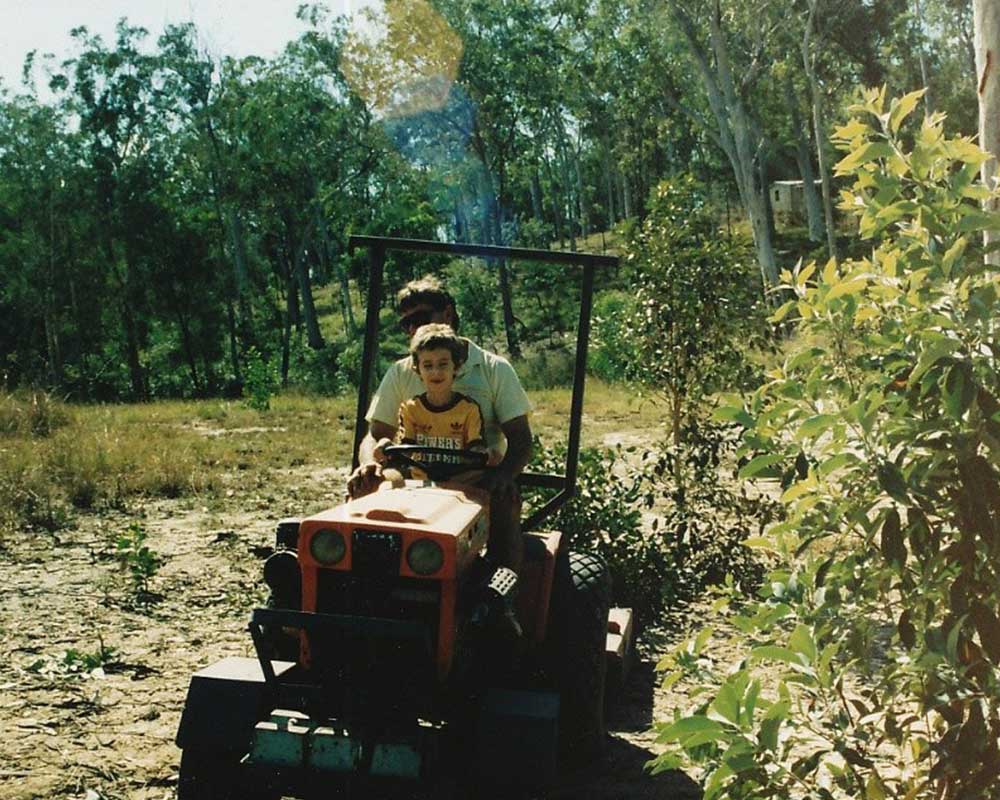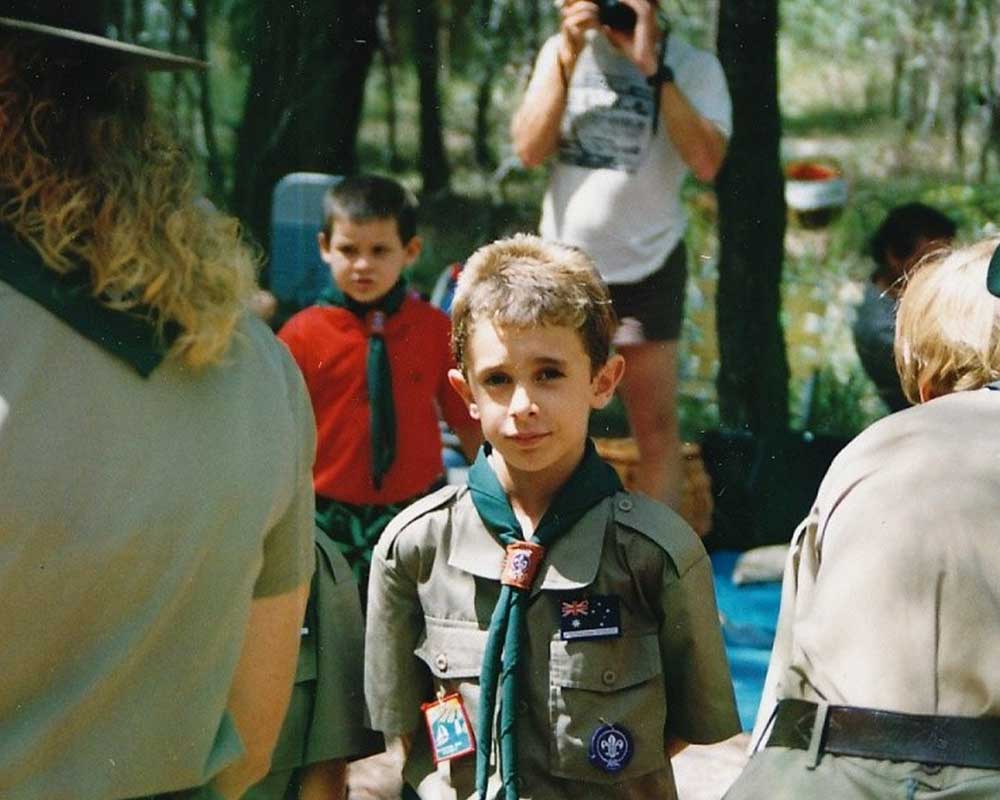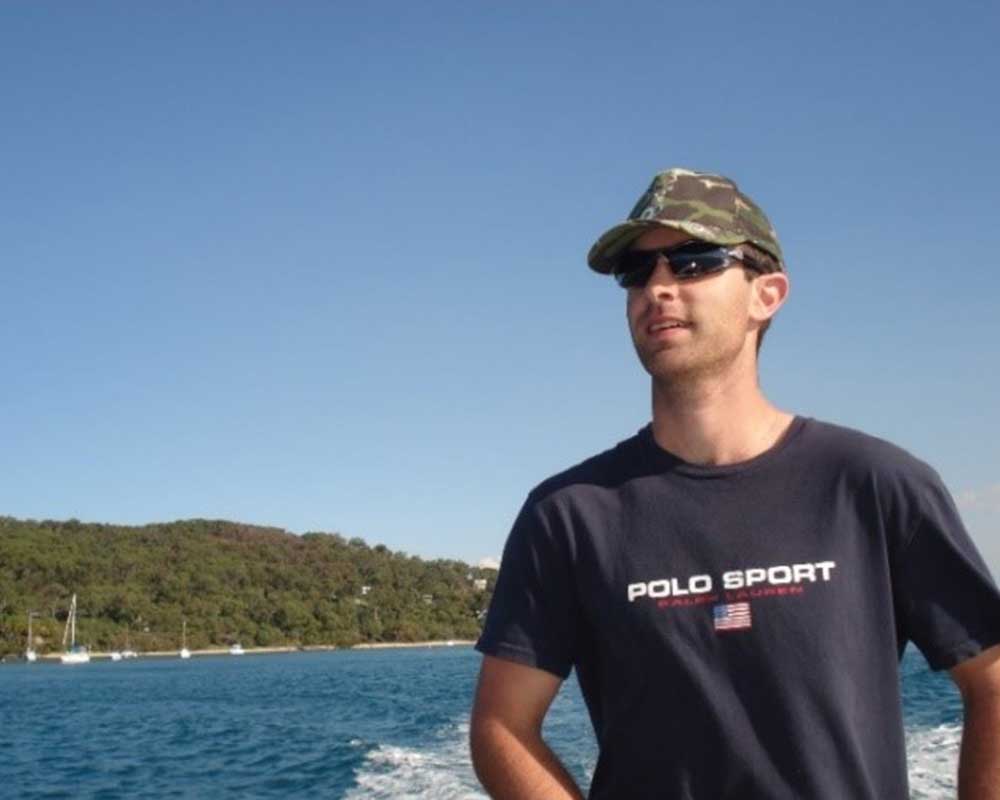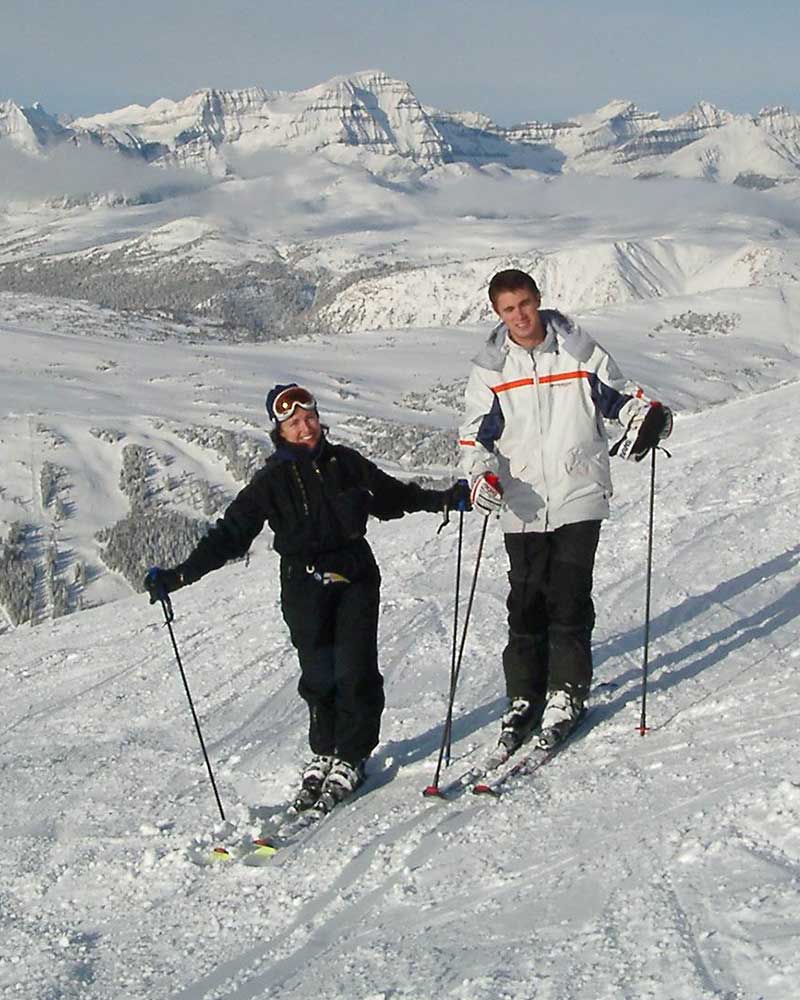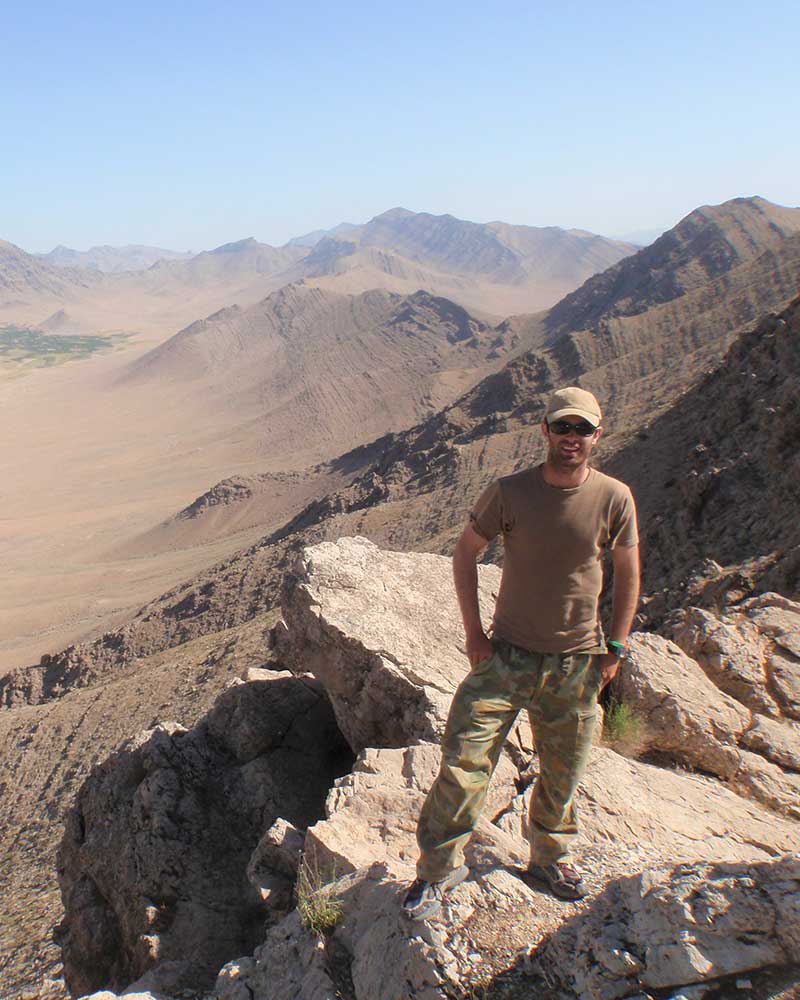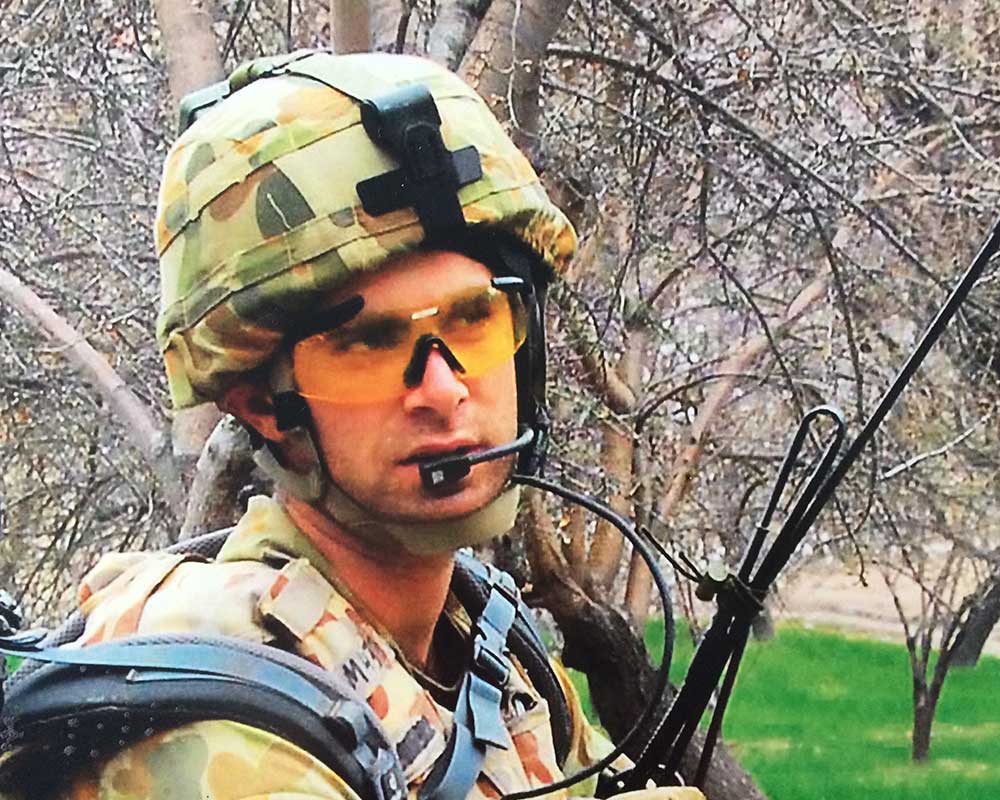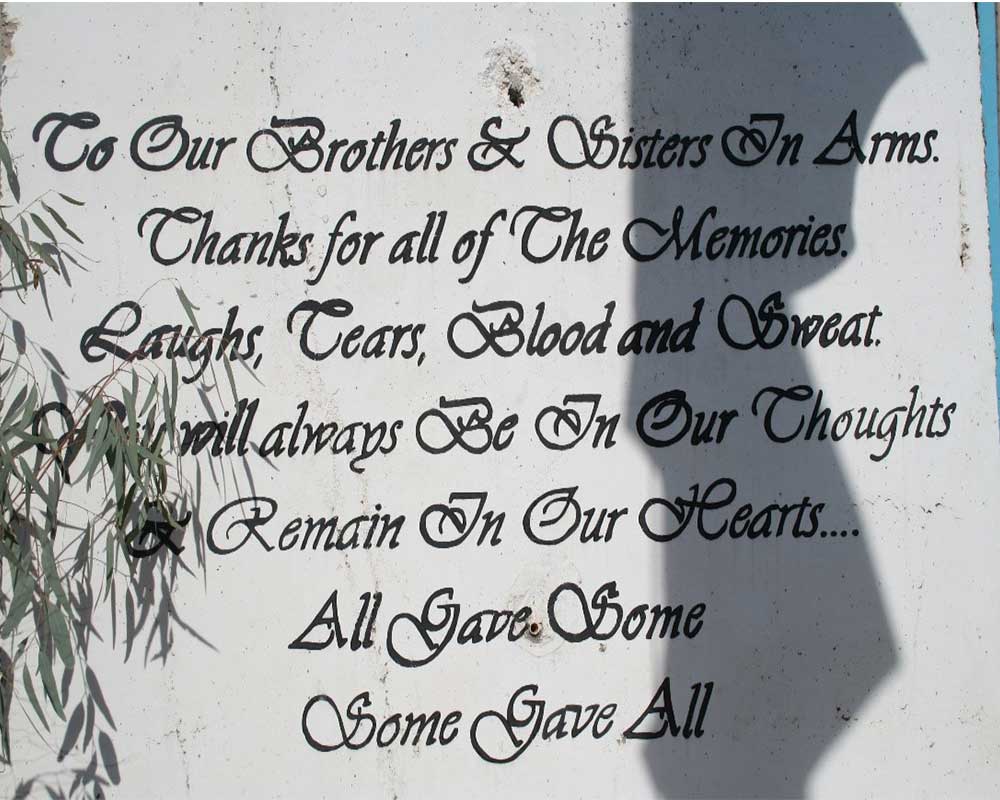Captain
Bryce Duffy
4th Regiment, Royal Australian Artillery
Captain Bryce Robert Duffy killed in action on operational service in Afghanistan on 29 October 2011. This stands as a day that will never be forgotten by Bryce’s family, friends and the Regimental family as a whole.
Bryce was shot by a member of the Afghan National Army in a Patrol Base in Kandahar Province, Afghanistan while serving with the Mentoring Task Force – Three. It was his second tour in a country where Australian soldiers were engaged in combat for over a decade. The nature of Bryce’s service spoke to the nature of the man; he volunteered for a second tour when a fellow officer was wounded in action. Fully conversant with the risk he offered his service readily and with passion – he knew no higher calling than to serve his country fighting alongside his mates in combat. Rather than mourning his loss, Bryce would want the memory of his time to be celebrated. Those that remain will endeavour to do him justice in the remembrance.
… he volunteered for a second tour when a fellow officer was wounded in action.
Fully conversant with the risk he
offered his service readily and with passion …
Bryce was born in Sydney in 1984 and was a proud student of the Anglican Church Grammar School in Brisbane – ‘Churchie’. He joined the Australian Defence Force Academy in 2003 where he continued his love affair with rowing, surfing, scuba diving, fishing and of course sampling of the brewed amber nectar.
Upon receiving his commission on graduation from the Royal Military College-Duntroon in 2006, he was posted to the 1st Field Regiment, Royal Australian Artillery based in Brisbane. It was during this initial posting that Bryce developed into the Forward Observer who deployed to Afghanistan with the 1st Mentoring Task Force in 2010 – a tour that was awarded a Meritorious Unit Citation.
In January 2011, Bryce was posted to the 4th Regiment, Royal Australian Artillery in Townsville – a location that gave him ample opportunity to sate his thirst for the outdoors and adventure. Bryce spent his spare time in two main endeavours. The first was near-endless training for the Special Air Service Regiment selection course which he completed shortly before his next deployment.
The second was spending time on his boat, fishing, mud crabbing and enjoying an icy cold beverage. Of the two, Bryce’s fitness was without doubt the more successful of the pursuits as his ute spent more time bogged in the tidal plains of Townsville than it did on solid ground, and he spent more time rowing his boat than he did with engines working.
For all soldiers, especially those of 4th Regiment, Bryce’s passing is a sombre reminder of the nature of our duty; however, his life was a lesson in care-free enjoyment. Bryce lives on through his parents and two sisters and will be forever remembered by his mates for the way he lived his life, not the manner in which it was taken from him.
From this day to the ending of the world,
But we in it shall be remembered
We few, we happy few, we band of brothers;
For he today that sheds his blood with me shall be my brother.
Rest in Peace Captain Bryce Duffy. Gone but never forgotten.
Kim Duffy, Bryce’s Father
At 0820 hours on 29 October, our lives took a turn from which we could never recover. Our son Bryce, a Captain with the Royal Australian Artillery was killed by a man in whom he had a calculated trust. Following a parade at forward operating base Sorkh Bed and walking from within a group of Afghan soldiers, this man opened fire with an automatic weapon firing two bursts, a total of about forty rounds at a range of ten metres, killing three Australian soldiers and wounding seven others.
This story had a beginning in St Margaret’s hospital in Sydney on 23 November 1984. Bryce’s arrival was way too early, some nine weeks in fact and for the first few days it was touch and go as to his survival. As with a lot of premature births, his lungs were underdeveloped and he needed help to breathe. On top of that, he suffered a lung collapse and needed to have a breathing tube inserted directly into his chest cavity to inflate his lungs and allow him to breathe. We sat by his incubator – Kerry for 24 hours a day until he was out of danger, although he remained in intensive care for an extended period. I had been posted to Canberra so when the time for the family to relocate, Bryce had to be taken in an air ambulance. When he came home his mother needed to apply daily physiotherapy to aid his chest and lung development. She must have done a good job because twenty-five years later Bryce completed the Army’s gruelling SAS selection course.
Bryce’s school years were defined by his great mates and his love of outdoor activities. He was an enthusiastic sportsman – never the star but always there. Bryce was not the best at anything, but he was good at everything. His great love was rowing. Just being part of a Four or an Eight man crew and executing the training strategy and the race plan gave him a great sense of the team and achievement. Later, his school Churchie named their First VIII boat the Captain Bryce Duffy. He brought them some luck and they won the Head of the River in their first year with the boat.
Bryce loved his sisters. With each he had a unique relationship that dictated those topics for which he would seek guidance and counsel. And then there were those areas where he was the subject master. Kerry and I were often quietly amused to watch how deftly he could play them and cajole them into doing his bidding. Their relationships were always filled with laughter and love.
Cassie Duffy, Bryce’s younger sister
Bryce was a wonderful older brother who I continue to miss immensely. As the years pass and I experience more of what the world has to offer, I continue to be struck by how rare Bryce was in his approach to life. While he loved to tease me relentlessly when we were younger, there was never any question that he would be there for me whenever I needed him. He was genuine without fault, lacked any superficiality and was never fazed by the obstacles thrown his way.
Bryce’s love for all creek to coast activities meant that his life was full of outdoor pursuits. He found great contentment spending an afternoon on a remote creek fishing in his dinghy and sipping on beers while equally thriving on pushing his limits in his free diving. These simple pleasures were reflective of a man who knew how to get the best out of life and an approach I do my best to follow. As his mate once said, he was the salt of the earth and as a little sister, it would be hard to find a more loyal or dependable brother.
He knew the value of service and his commitment was unwavering. It is a tragedy that Bryce was taken from us too soon, but we continue to live our lives in a way that we hope would make him proud.
Sam Duffy, Bryce’s older sister
Over the years Bryce showed considerable skill with every outdoor activity he took on. Whether it was building a flying fox over a creek or camping under the stars, he loved it all. Always happier when outdoors, it was little surprise he chose a career in the Army and was certain on this direction from as long as I can remember.
It was not just the potential for adventure drawing Bryce to Army; he was always focused on helping others. From when the three of us were young, Bryce was looking after animals and particularly devoted to his dog. This devotion shifted to people. Incredibly compassionate, with not a mean bone in his body, he gave often to those around him.
We are so proud of Bryce’s accomplishments and of the man he became. The loss of Bryce was never easy. It never could be. When we love, losing hurts. Sharing his story, keeping his memory alive makes this loss slightly more bearable.
Extract from Walking Wounded by Brian Freeman and Tony Park
Turning Point
The American patrol, a platoon of about 30 men, checked their gear one last time, cocked their weapons and moved out of the back gate of Patrol Base Mirwais on foot into the Chora Valley.
With them were two young officers from the Royal Regiment of Australian Artillery, Captain Bryce Duffy and Johann Pitzer, or ‘Pitz’ to his mates. The latter man was brand new in-country getting ready to replace Bryce, who was just four days shy of going home, his first tour in Afghanistan almost up.
Bryce had seen the horrors of war. He was around when Snowy Moerland and Darren Smith were killed and he saw Private Tim Wilson sent home with his wound. MTF 1 had taken the fight to the enemy and helped spread the Afghan Government’s influence into Uruzgan Province, but their gains had come at a price – 2010 was Australia’s bloodiest year of the war so far. While Bryce was at home on leave mid-way through his tour, catching up with his mum and dad, Kerry and Kim, and his adoring sisters, Cassie and Sam, he’d heard the terrible news that three commandos, Scott Palmer, Ben Chuck and Tim Aplin, had been killed in a Black Hawk helicopter crash and several other operators seriously wounded.
But Bryce had also found a sense of purpose here in the hills and valleys of Afghanistan. He had put into practice the extensive and expensive training he’d received back in Australia as an Artillery Forward Observer.
Bryce and Pitz were good friends; they had been to the Royal Military College at Duntroon, their first postings were to the 1st Regiment in Brisbane, together on the same Regimental Officers Basic Course for Artillery at the School of Artillery in Puckapunyal and later continued further training together on the Joint Fires Observer (JFO) course. Their role, co-ordinating fire support on the battlefield, was the ultimate tactical level posting a young artillery subaltern could hope for, and here they were, both doing it. Bryce could summon an artillery bombardment from the howitzers at Tarin Kot or the US operated Combat Out Post TABAR or, as a JFO, call on helicopter gunships or fast-moving jets to rain down a hail of destruction on the enemy on his command. Pitz was here to learn from his mate and was keen to have a crack at the job himself, for real.
The Americans were not as new to Afghanistan as Pitz was – they had come under fire before – but they had yet to suffer casualties and Bryce, as the most experienced officer on the ground, was keeping a customarily critical eye on everyone around him.
The patrol headed west from the patrol base and when they left the last of the dirt filled Hescos, chicanes and bollards they cut into the green zone and the cloying mud of irrigated fields. Johann Pitzer felt his leg muscles start to burn and marvelled at the way the others in the patrol seemed to be so accustomed to such exertion.
They set off through fields, across aqueducts and over the low mud brick walls that separated different crops and made their way circuitously to an ANP check point. In a sandbagged outpost, out of the green zone and high and dry in the dust of the dascht, were an old man with a bushy grey beard and his young charge. The elderly policeman invited the Americans and Australians in for chai, a lukewarm, discoloured brew poured over a couple of centimetres of sugar in little cups.
After drinking and chatting a while the young American platoon commander was able to convince the policemen they should accompany the western soldiers on the patrol, to show their presence to the local people. With the Afghan officers leading, the troops drained their chai and saddled up.
Bryce was considering, and had discussed with Pitz during phone conversations before his friend had deployed to Afghanistan, was applying to do the Special Air Service Regiment (SASR) cadre course – the gruelling selection program for entry to the Australian Army’s elite Special Forces unit. This would mean a change of corps from the artillery to the infantry, but Bryce had been operating in the field, on his feet, for eight months. Selection would be physically hard, and while Bryce was not an exercise junkie he was physically fit and relished a challenge.
The Afghan police came to the main east-west aqueduct that ran through this section of the valley. The crossing point they chose was a well-worn path, cut into the steep earthen banks of the watercourse, with houses about 50 metres either side of the ford. To the north was a scattering of almond trees and crops while to the south recently-reaped cornfields stretched away a couple of hundred metres. Goat tracks showed the crossing had been used recently and often. The policemen splashed through the water and about a third of the platoon of Americans followed them. The two Australian Officers, Duffy and Pitzer crossed the aqueduct, wading through the cool waters.
The morning’s peace was smashed asunder by a blast, behind the Australians on the other side of the aqueduct they had just crossed. Johann hit the ground and looked back to see a thick plume of yellow dust rising, scarring the azure sky. Around him everyone else in the patrol had also gone to ground.
Bryce Duffy was the first man on his feet and leapt, literally, into action, springing to his feet and running towards where the IED had detonated. “Pitz, follow me!” he yelled.
Johann lost sight of Bryce in the dust, but when he reached the creek and jumped over he found Bryce crouched next to a soldier who lay screaming in the dust, his leg blown off. An American medic had the presence of mind to go to his comrade’s aid and Bryce had given the medic his own tourniquet to tie around the ragged stump. Next to the man who was being treated was another casualty, not as visibly injured as the other soldier, but probably suffering internal injuries. When the two wounded men were moved a third man was found dead.
“Do you want to handle this one?” Bryce said, calmly, to Johann.
“Yeah mate, let’s do this,” Pitz said, eyes as wide as dinner plates.
While Johann took a note of the details of the wounded men’s injuries, on the nine-line casevac form taped to the butt of his Steyr rifle, noting the number of types of injuries, the location of the incident and other information relevant for the helicopters he would call in, Bryce took control of the shocked troops around him.
Bryce assisted by forming the American platoon into an all-round defence to protect the landing zone in the nearby cleared cornfields and allocated arcs of responsibilities to the machine gunners. Two Black Hawks and escorts of Apache AH-64, armed reconnaissance helicopters were scrambled from the main coalition base at Tarin Kot and were soon inbound.
Continuing to exercise command over the situation, Bryce spoke to the Apache pilots by radio, telling them to watch out for concentrations of armed men who look to have hostile intent who might be gathering in the houses spread out along the aqueduct. He gave the order to throw smoke grenades to mark the LZ as, one after another, the Black Hawk choppers landed to pick up the wounded and the dead.
After the casevac, detailed examination of the remains of improvised bombs provide clues as to who made them, and how better to combat them in the future. As the team went about their work Johann Pitzer saw for the first, but not the last, time how bees were drawn to blood and flesh.
Once the inspection was completed a decision was made higher up to fly out the patrol on Chinooks. Just as the giant twin-rotor helicopters were about to land, Bryce was presented with a final test of his quick thinking and cool nerve; a jingle truck came trundling into sight along a road, on a route that could place it in the path of the choppers’ final approach.
“Shoot it,” yelled one of the American soldiers.
“Yeah, stop it!” called another.
With only seconds before the Chinooks turned to approach their landing, Bryce strode down the road, raised his Steyr assault rifle to his shoulder and fired two rounds into the ground, a safe distance in front of the truck. Seeing the puffs of dust and hearing the bullets crack, the driver put on his brakes. The helicopters were able to land, a potential civilian casualty had been averted, and Americans and Australians were safely evacuated.
“Welcome to Afghanistan,” the officer commanding Patrol Base Mirwais said to Johann Pitzer when the patrol returned. For Pitz it was an adrenaline-charged introduction to war in a strange land; for Bryce Duffy it was another day at the office.
Senator Major General Jim Molan (Ret), AO DSC
An extract from an address at the Memorial service for Captain Bryce Duffy
What our national leaders see before them today is the exclusive group of professional soldiers that Bryce felt privileged to belong to. As we look around there are many fine examples of that group – both young and not so young. His Warrior group of mates was important to him and he regaled his family with tales of those characters, often to the point where it was as if his family knew them personally. One of them, who carried Bryce’s coffin, said to his mother: “I’d carry Duffy anywhere mum – its putting him down that’s the hard part”.
Duty was an issue that Bryce never had to pause to ponder. He recognised we all have rights – but not unfettered ones – that we should be free to enjoy. More importantly, he understood instinctively, that each of us has commensurate, if not greater, responsibilities to exercise. If one views responsibility as an explicit or implicit obligation to take action, especially in the interests of others, Bryce was never found wanting by any measure.
Some who are not familiar with the military may find it strange that apparently sensible men such as Bryce choose to follow what can be described as a ‘violent profession’. The reality is that the reverse is often true. As a rule, Australian military officers see violence in perspective. A Roman writer in the 4th Century once advised that: “If you want to live in peace, prepare for war”. His remark has been hijacked from time to time, but the thrust is no less valid. Bryce might have had many motivations to be a soldier but he believed that to protect what Australia is, and what it stands for, soldiers need to prepare and train hard, and be the best that they can be.
From this day to the ending of the world,
But we in it shall be remembered
We few, we happy few, we band of brothers;
For he today that sheds his blood with me shall be my brother.
Rest in Peace Captain Bryce Duffy. Gone but never forgotten.
Colonel C.P.H. Weller, CSC
Commanding Officer 4th Regiment RAA 2011
An extract from an address at the Australian War Memorial 2015
93 years ago the guns fell silent on the Western Front and since we have remembered on this day those who have fallen. Today we honour Captain Bryce Duffy of the Royal Regiment of Australian Artillery, another Anzac, who died in the service of his country.
I cannot find better words to define Bryce as an Army officer than Anzac. C.E.W. Bean said Anzac ‘stood and still stands, for reckless valour in a good cause, for enterprise, resourcefulness, fidelity, comradeship and endurance that will never own defeat.’ This encapsulates Bryce and his approach to soldiering.
I had the privilege to serve with Bryce this year as his Commanding Officer. He came to 4th Regiment after four years in 1st Field Regiment that included a deployment to Afghanistan.
… he believed in duty, honour, country …
Bryce is one of those magnificent people for whom life is about more than personal advantage – he believed in duty, honour, country – and dedicated his life to them wholeheartedly. His actions in the Regiment reinforced this. I have three anecdotes about Bryce that I would like to share.
Bryce prepared for the SASR selection course by training incredibly hard – I had told him that I would let him attempt selection only if he convinced me that he was prepared fully. He was… he completed that most demanding course but was not selected. I will always draw inspiration from his response to this – mature and reflective without rancour he redoubled his efforts to be the best Officer he could be, which reinforced that he was a man of character.
Bryce also pushed boundaries for enjoyment. Less well known than his passion for fishing is his penchant for cross country driving in a 2WD ute! Imagine my surprise one Sunday when I heard that seven of my officers had become bogged on nearby tidal flats and required a tracked excavator to get them out… as things had transpired Bryce had been ‘cross countrying’ in the 2WD ute and become hopelessly bogged so he rang a number of mates – all officers in the Regiment – who proceeded in a manner akin to lemming migration to see if they could in their 4WD best him and get him out – alas they could not and Bryce along with excavator was the winner on the day. I was left with grudging admiration for his powers of persuasion and peer acceptance and a concern for the judgement of my junior officers!
Shortly following selection, I asked Bryce if he would replace an officer who had been wounded by an Improvised Explosive Device in Afghanistan. True to form he volunteered without hesitation. I believe he saw deploying to Afghanistan as his place his purpose, and – as a warrior – he put service before self and went once again into harm’s way. I know from Major Phill Hickey, his Battery Commander there, that Bryce marked his time in Afghanistan with unbounded energy, diligence and belief. Even though only there for a short while he contributed to the mentoring task force tangibly.
… a consummate professional who loved soldiering …
Bryce was a consummate professional who loved soldiering – his chosen vocation. He accepted its privations and relinquished many of society’s luxuries. A leader and warrior who was respected and admired by all ranks Bryce epitomised Teddy Roosevelt’s man in the arena where:
It is not the critic who counts: not the man who points out how the strong man stumbles or where the doer of deeds could have done better. The credit belongs to the man who is actually in the arena, whose face is marred by dust and sweat and blood, who strives valiantly, who errs and comes up short again and again, because there is no effort without error or shortcoming, but who knows the great enthusiasms, the great devotions, who spends himself for a worthy cause; who, at the best, knows, in the end, the triumph of high achievement, and who, at the worst, if he fails, at least he fails while daring greatly, so that his place shall never be with those cold and timid souls who knew neither victory nor defeat.
Serving with Bryce was an inspiration, a privilege, and a pleasure. Our nation is poorer for his passing but richer for his service. I will miss him.
We shall remember him.
Captain Rob Hartley (Ret) RAA
Bryce, I don’t know which memory stays with me the most, at the School of Artillery mess when you shouted me shots of vodka but actually gave me vinegar…or when you got yourself so bogged trying to go fishing off the mud flats in Townsville that you called the Duty Officer to pull you out in a service Land Rover, which got bogged, and then a UniMog…which got bogged and so on until half the 4WD vehicles in the Townsville region were bogged in a line behind you. Miss you mate, until we get bogged and go fishing again.
Ash Lovell, childhood friend
There was never a dull moment growing up with Bryce. It was all about the adventure, the challenge. From his dinghy which would start 4 out of 10 times and give us rowing practice, going on a surf camp with no food on the basis of catching it, to walking home after a night out through farmland rather than the roads. He never whinged, he got on with life. He created memories which are meaningful and full of character.
Major Michael Corkran, RA Inf
Aside from being a charismatic Army officer, Bryce was also a passionate waterman. I’ll always remember how much he enjoyed being on the ocean, amongst the waves, or diving below. I’d like to think that you’re still chasing the catch of the day somewhere.
Anthony Armstrong, childhood friend
Bryce – As loyal a friend as I could ask for. I miss the great times we had, your easy laugh and the support you showed in the tough times. Most of all I just miss having you around. My father always said good people attract good people and Bryce was a good person.
Tim Gibson, childhood friend
Too many memories of you, from school camps out bush avoiding magpies to beers on Anzac Day striking up conversations with generationally-wiser folk who wore the same RAA tie as you. One thing was consistent, exemplified in everything you did; you were and will continue to be, the bar for the status of a legend.
Major Luke Crow, AAAvn
Bryce AKA “Duffman” or just “Duffy”, was my mate. We met in Brisbane Jan 2003 when we joined the Army on the same day. We were off to the Australian Defence Force Academy where over the next 4 years we would spend a lot of time together. Bryce was easy for me to be friends with as we had a few things in common right from the start, rowing was the most significant as I found out that he loved it as much as I did. We were in the same Division during our first year in the Army, which meant that Bryce and I along with others were making mates that would be like brothers from that time on. His other love was surfing. He never had much stuff in his room over the time we were at ADFA but what he did have was surfing videos. The fact that he didn’t have a TV didn’t bother him because I did which meant I got to watch the surfing videos too. Although I must admit I was not much of a surfer I loved the ocean, which was good enough to get an invite to stay at his parents apartment at Kirra Beach once or twice. The other things he had in his room where mementos from his fathers time in the Pacific Island Regiment. He was very proud of his Dad and his time in the Army.
This year marks 10 years since Bryce passed away. We were both teenagers when we first met and it feels like a long time ago that we were together. I am the one getting older and he will be a young bloke forever in my mind. My memories of him were always of fun and sometimes-wild times and because of that I remember them well with many stories to tell. Needless to say because of his laid back attitude and our shared interest he was always someone good to have around. The 4 years we were in Canberra until we graduated from Duntroon we rowed together in the same crew. Bryce rowed stroke side and I rowed bow side, which meant we could always crew a boat even if it was just the two of us in a pair. Although we would mostly row larger boat crews, having him on the opposite side was particularly handy. We rowed so much together that if he was not around at times people would naturally ask me where he was or just assume he was “at rowing”. A convenient excuse that could often get us out of trouble. I could always count on him to come out to the boat shed early in the morning particularly during morning inspection days.
With our parents living relatively close together in Brisbane and the Gold Coast we had the opportunity to hang out during the holidays a bit too. I still don’t know how we were allowed to stay at his parent’s apartment at Kirra Beach but we had a great time doing it. Surfing every day and eating a diet of mainly beer and chicken rissoles, at the time, it doesn’t get much better than that.
I could tell stories all day about Bryce Duffy but the main thing I want to say about him is that he was a good bloke, a loyal mate and I miss him.
Major Daniel Groves, RASigs
Duffy, you are a charismatic leader and a great friend to all. Your selfless devotion to duty allowed you to achieve what most could not. You put others before yourself and when we fell, you would always be there to pick us back up. We are so proud to be a part of your life. You are always on our minds, forever in our hearts.
Honours and Awards
Captain Duffy has been awarded the following honours and awards:
- Australian Defence Medal
- Meritorious Unit Citation – 1st Mentoring Task Force – Afghanistan 20 January to 30 October 2010
- NATO Non-Article 5 Medal with clasp – International Security Assistance Force (ISAF)
- Afghanistan Campaign Medal
- Australian Active Service Medal with clasp International Coalition Against Terrorism (ICAT)
During Captain Duffy’s service in the Australian Army, he deployed on the following operations:
- Operation SLIPPER (Afghanistan) – January 2010 – October 2010
- Operation YASI ASSIST (Australia) – February 2011
- Operation SLIPPER (Afghanistan) – September 2011 – October 2011
Captain Duffy was a member of the Mentoring Task Force – Three and was from the 4th Field Regiment, Royal Regiment of Australian Artillery (RAA) based in Townsville.
Captain Duffy is survived by his partner, parents and family.
Captain Duffy was born in Sydney, NSW, in 1984. He was educated in Brisbane. He joined the Australian Defence Force Academy in January 2003 and completed a Bachelor of Science. He graduated from the Royal Military College in December 2006. He was then posted to 1st Field Regiment, Royal Australian Artillery based in Brisbane.
He served with the 1st Field Regiment between 2007 and 2010. He was transferred to the 4th Field Regiment in Townsville in January 2011 as the Assistant Operations Officer, before his second deployment to Afghanistan in September.
Captain Duffy was a well known and highly-regarded young officer. He was recognised by his commanders for his strength of character, determination and diligence. His peers remember him as an officer who maintained the highest possible personal standards. His selfless dedication to duty was demonstrated by the fact that he had volunteered for his second tour of duty in Afghanistan at short notice, after a fellow officer was wounded in action.
Captain Duffy has been awarded the following honours and awards:
Australian Defence Medal
Meritorious Unit Citation – 1st Mentoring Task Force – Afghanistan 20 January to 30 October 2010
NATO Non Article 5 Medal with clasp – International Security Assistance Force (ISAF)
Afghanistan Campaign Medal
Australian Active Service Medal with clasp International Coalition Against Terrorism (ICAT).
During Captain Duffy’s service in the Australian Army he deployed on the following operations:
Operation SLIPPER (Afghanistan) – January 2010 – October 2010
Operation YASI ASSIST (Australia) – February 2011
Operation SLIPPER (Afghanistan) – September 2011 – October 2011.
Statement on behalf of the family of Captain Bryce Duffy
Defence releases the following statement on behalf of the Duffy family.
Bryce was an exceptional man and a dedicated officer who was an inspiration not only to us, but also to his peers and the men and women he served alongside.
He was a Churchie (former student of the Anglican Church Grammar School), a rower, a surfer, a fisherman, a scuba diver and a much loved member of a very proud military family.
He was forever the consummate professional, extremely competent and very well respected by his colleagues and commanders.
He was passionate about what he did, truly believed in his cause, and always strived to serve his country in the best way possible.
He held long career aspirations in the Army, having recently completed the SAS selection course and looking forward to joining their ranks in the near future.
We loved Bryce to the ends of the world and not a day will go by where he is not thought of.
We now request the media to respect our privacy at this very difficult time and provide us with the time and space to grieve.
We will not be making any further comment and thank the media and community for their understanding.
